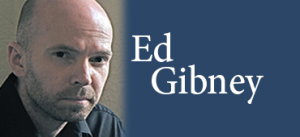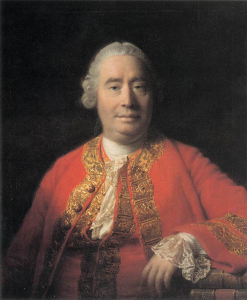Proposing an Objective, Godless Basis for Morality

We’ve all been told we’re supposed to “be good.” But why? So your god can reward you? Such religious reasons have no evidentiary basis for their competing and occasionally destructive morals.
Should you be good so you’ll act in ways society approves? Any such list of virtues amounts to little more than saying, “we all think that would be nice.”
Should you simply try to maximize well-being for as many people or sentient creatures as possible? That utilitarian principle of circular logic never gains traction without an objective definition for “well-being.”
I hate to be the bearer of bad news, but whatever your morality system is, there is almost definitely something wrong with it. Experts have yet to agree that one system of ethics is right, so yours must be wrong somewhere. General moral questions are easy to resolve so we stop thinking about the subject, but the difficulties are at the edges, and when those boundaries aren’t fixed we’re left with divides that cause some of the biggest problems in the world—religious wars, political rifts, the destruction of the environment, and unsustainable levels of socioeconomic inequality, to name just a few. In a paper I published earlier this year, titled “Bridging the Is-Ought Divide,” I proposed an answer for the only correct basis for morality, and if enough of us adopted it we might just find a way to solve some of those big problems.
Before I get to that answer, a little history of the journey there will smooth the arrival. Plato was one of the first major thinkers to raise a difficult question for moral philosophers when he posed what is known as the Euthyphro dilemma about 2,400 years ago. In it, Plato asked a religious expert, “Is the pious loved by the gods because it is pious, or is it pious because it is loved by the gods?” In other words, do we just take a god’s word for it that something is good, or would it be good even if the gods didn’t say so? Is there an objective measuring stick for what is good? Until now, no one has ever found one.
That conundrum didn’t stop religions and other belief systems from telling us how we ought to act though. There is no shortage of sayings starting with “thou shalt” or “you should” or “do unto others.” In 1739, however, the Scottish Enlightenment philosopher David Hume definitively stated why these moral orders have never been justified. Hume pointed out that all religions go directly from objective descriptions of the world (“is” statements), right on to subjective prescriptions of morality (“ought” statements), but you cannot get from one to the other using logic alone. This argument came to be known as the is-ought divide, and for over 275 years it has never been crossed.
Hume didn’t think this divide was an uncrossable chasm though. He knew we get from is to ought all the time in our daily lives, but only ever by using “wants.” As a trivial example: There is a cookie in the jar. I want a cookie. I ought to open the jar. I’m ignoring any larger questions of diet and health in this example, but the important thing to note is that you can’t use the first and third of those statements without the second one in between. Otherwise, I might say I didn’t want a cookie so there’s no reason I ought to go get one. Morality works the same way. Whenever a church says something like, “Max is a liar. Max ought to be punished,” they are skipping a logical step. Where is the want? And if you claim your moral rules are universal and objective, then this want has to be universal and objective too. But what kind of want could that be?
For hundreds of years, no one knew. When Hume tried to find it in his later work, An Enquiry Concerning the Principle of Morals, he wrote:
Ask a man why he uses exercise; he will answer, because he desires to keep his health. If you then enquire, why he desires health, he will readily reply, because sickness is painful. If you push your enquiries farther, and desire reason why he hates pain, it is impossible he can ever give any. This is an ultimate end, and is never referred to any other object. … And beyond this it is an absurdity to ask for a reason. It is impossible there can be a progress in infinitum; and that one thing can always be a reason why another is desired. Something must be desirable on its own account, and because of its immediate accord or agreement with human sentiment and affection.

David Hume. (Licensed under Public Domain via Wikimedia Commons)
Sadly, Hume wrote this in 1777, just over eighty years before Darwin was to publish On the Origin of Species. Had he been introduced to that book and been able to think through the ramifications of evolution, Hume may have arrived through his root cause analysis at the fact that existence is the ultimate end, and survival is the thing that must be desired on its own account. Prior to existence—or after it is extinguished—there are no desires to speak of. If the state of existence is not satisfied, then there is no one to answer any further inquiries. The fundamental nature of being implied by the use of the word “is” is the very thing that helps us get from is to ought. We are alive. We want to remain alive. We ought to act to remain so. But who exactly am I talking about when I say “we” ought to act this way?
In 1981 philosopher Peter Singer wrote The Expanding Circle, which explained how a rational regard for the self could logically lead to taking the views of others into account, an idea that Singer was able to expand until “others” encompassed all of humanity. In later works, he pushed this consideration to all sensitive species. But is this even enough? Is it a universal want to want to consider the needs of sensitive creatures alive today? Can we all agree with that?
Not quite. In 1998 biologist E.O. Wilson published the book Consilience, which sought a grand unification for the study of the biological sciences. Biology is literally “the study of life” and Wilson believed an understanding of scale was the means by which the separate biological sciences could come together to form a universal picture of all of life. According to the magnitude of time and space used for analysis, the basic divisions of biology from the smallest to the largest were:
(1) Biochemistry → (2) molecular biology → (3) cellular biology → (4) organismic biology → (5) sociobiology → (6) ecology → (7) evolutionary biology.
So the sum of these seven categories provides a comprehensive picture of all life. From the short-term atomic scale of biochemistry, all the way up to the complex systems of individuals within ecologies interacting and changing over evolutionary timeframes—every creature we could ever want to care about falls somewhere in this spectrum. This is how we finally arrive at the universal want that bridges Hume’s famous is-ought divide: we all want “life in general” to survive over the long term of evolutionary timescales. This is what Euthyphro’s piousness should lead to. This is as far as Singer’s circle can be expanded. All of us, all forms of life, in any period of time, if able to be asked and to give a reply, would say yes, we want that. It is an objective and universal want that provides the link to a morality we can all agree to. Life is. Life wants to remain an “is.” Life ought to act to remain so.
This is, therefore, the ultimate reason why we ought to “be good.” Some of us may readily agree to this objective basis for a secular morality and begin to design our short-, medium-, and long-term systems of ethics accordingly. But what happens when others reject this goal? What if, for example, some people want to live by religious rules that promise them an afterlife instead? Or others just want to have fun and “seize the day” because “you only live once”? Or still others just don’t think I’ve made my case strongly enough and they want to continue being guided by their current philosophical beliefs? First, there’s nothing in this universe that says the morality I’m proposing has to be followed, just that it ought to be followed. So even though there’s no evidence for the religious reward, quite a lot of evidence that hedonism won’t lead to happiness, and little evidence that other schools of philosophy have been proven correct, as long as these desires don’t conflict with the long-term goal of the survival of life, then others have the freedom to be motivated as they wish.
Yes, these other desires can be followed, but only as long as they never supersede the desire to want life to survive. After all, if life doesn’t survive, that would destroy a lot of potential “souls” for religion’s gods and heavens, and it would forever stop the production of any further happiness or well-being in the universe. However, if people still want their religious, hedonistic, or relativistic beliefs at the expense of the survival of life, then they must say so, and the rest of us will try to persuade them otherwise. Because, to paraphrase Neil deGrasse Tyson talking about science, that’s the thing about this universal goal of survival—life will be judged by it whether you and your morality believe in this or not. The nature of knowledge means we may not always know ahead of time which actions will prove to be good or bad ones, but just like our other quests for truth, we can use the empirical scientific method to carefully find our way towards our goal. Actually, change that last part. It’s not enough to say that we can work towards this goal; we now know that we ought to.
